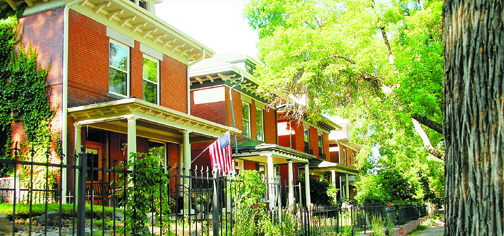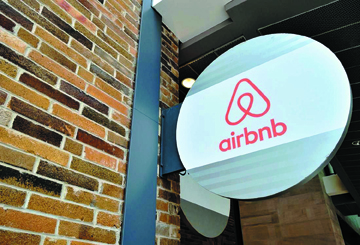by Chris DeGusto

The methodology dedicated to handling Denver’s short-term rental (STR) industry is fairly new, as the governing structures used today are from a 2016 city ordinance. Ongoing efforts to find a perfect solution in an imperfect situation — one that makes everyone happy — have been difficult to find. Denver is faced with rapid growth, and this expansion has fallen upon current and future residents to placate.
Almost anyone who has heard of STRs has an opinion about them due to a personal experience of some kind. Yet, multiple people in the Mile-High City have declined to tell their story, and most who elected to share spoke in hushed, prudent tones with lowered eyes. They shot frequent glances around and recounted their anecdotes incompletely.
“I was told not to [speak on the record],” said Rebecca after a pause. “I was told that there could be retaliation. I don’t know what’s going on. I don’t know, I just think this is much bigger than it appears.”
Rebecca declined to provide her last name. She chose not to elaborate on her remarks, define what she believed retaliation would entail or from whom it could come. A large portion of those who spoke to the Glendale Cherry Creek Chronicle would not divulge any information at all but acknowledged they were affected in some way.
Denver’s STR conversation has many sides. The business side has provided crucial financial benefits for some. Others have lost faith in their neighborhood’s economic value. But a report released in April by the Denver’s Economic Development and Opportunity Department exhibited that STRs have not had a significant impact on the cost of housing. According to the report, only one percent of Denver’s housing supply is an STR, and revealed weak correlation to local rent increases.
Still, like Rebecca, some are more concerned with how STRs affect daily life in their community.
Sophi told the Chronicle that people have mistakenly tried to enter her home in the middle of the night on multiple occasions, as recently as this month. Intruders on her property were supposed to be at the STR next door where they were staying.

“The dogs woke up and were barking and trying to figure out what was happening — I thought somebody was breaking in,” said Sophi. “I am often alone in the house. It’s not a great feeling to be next to a really drunk [group of] guys or to have people trying our door. I think once you get that many people together who are not all with it, that’s a safety issue.”
Others have expressed similar safety concerns but declined quotation.
Rebecca and Sophi share a home in Denver’s Washington Park neighborhood next to a “mega-mansion” of roughly 2,000 square feet. According to Sophi, the property has often hosted bachelor parties where the guests’ goal is to “drink as much as they can and smoke as much as they can.”
As an STR property manager, David Pardo’s “bread and butter” are “big and noisy parties.” Pardo, who has been an STR host for over five years, has managed a combination of properties ranging from one-bedroom apartments to larger townhouses. In an interview with the Chronicle, he said that over 1,600 groups of guests have utilized his properties. Some of these sites have specifically catered to events such as bachelor and bachelorette parties, and Pardo estimated that he has hosted over 100 of these gatherings. These homes are located in areas of commercial use where local zoning laws do not prohibit the operation of business, and downtown, where noise is already generated from local bars and nightlife.
According to Pardo, the vast majority of his guests have not broken any rules established by both the hosting platform and himself. Most of the harm Pardo has experienced caused him personal logistics problems but hasn’t affected close-by residents in any fashion.
“All the neighbors of my properties know exactly what’s going on. They have all the contact info,” said Pardo. “We’ve got all the noise awareness systems, sensors, cameras — we know what’s going on because we don’t want our guests to have a [negative] impact. We build that into our system. That’s not a requirement that the city has. That’s a requirement that I have for myself. It’s personal practice for the sake of my business.”
Not all STRs are in stride with legality. Denver’s 2016 rules state that an STR can only be operated from a primary residence. In June a couple was charged with felonies for running an STR outside of their primary residence.
Denver’s Office of Excise and Licenses spokesman Eric Escudero said in a recent email correspondence with the Chronicle that Denver is not anti-STR and explained how the city has investigated potentially illegal STRs.
“After collecting evidence that shows people are operating an STR that is not their primary residence, Denver frequently sends out an affidavit to suspected illegal STR operators giving them one last opportunity to come clean,” according to Escudero. “If they lie on the affidavit attesting their STR is their primary residence, they could be charged with the crime of influencing a public servant.”
To mediate the STR conversation and push the industry in Denver toward more effective operation, Denver’s Short-Term Rental Advisory Committee (STRAC) has orchestrated the rollout of a dual-phased plan. The first section is focused on updating current language and defining terms such as “primary residence” in a clearer fashion as 2019 concludes.
The Committee’s mission is to “provide guidance and recommendations to Excise and Licenses policies pertaining to the STR licensing program.” They have hosted meetings that encouraged public comment, and members of the Committee include STR hosts, industry stakeholders, residents of the neighborhood and elected city officials.
Hosts of STRs must also obtain licensure to operate lawfully. Denver currently has a 78.3 percent compliance rate, one of the highest in the nation according to the most recent data from the Office of Excise and Licenses. In the same data set is the compliance rate of other major cities: Nashville, 59 percent; New Orleans, 58 percent; San Francisco, 42 percent; Austin, 18 percent.
And while complaints about STRs are the most common to the Office of Excise and Licenses, this data has shown that Denver has displayed positive trends. STRAC provided data at their October meeting as well; complaints about STRs to the 311-information hotline have gone down from 92 in 2018, to 72 as of October 2019.
Phase two of STRAC’s plan is set to roll out as 2020 hits its second quarter. Their proposed plans included finding the best practices and legal parameters for property management requirements, as well as working with other cities to draft effective new language centered around platform accountability.
Industries that have thrived due to STRs have taken a hit. Joyful Soul Cleaning’s owner Kayla Darling has operated her business within STRs. She has been able to create jobs for many others in part due to rental properties and joined the conversation with the hopes of changing peoples’ hearts and minds but told the Chronicle that she has lost business due to the decrease in rental properties.
“It’s definitely important to me that our voices are heard, so that we can say, hey we want to work with the city, we want to work with the communities to make [the STR business] a positive experience for everyone that we can,” said Darling. “But then also, we don’t want half of to go away.”
According to the Office of Excise and Licenses, the number of unique property listings has dropped 21 percent since last October, and 158 applications for licensure withdrawn since April. Additionally, the total number of active licenses has gone up 24 percent. This provides evidence that more residents have looked to follow compliance rules, but less have listed their homes as an STR.
One thing is clear: the growing pains of Denver’s STR industry can only be cured with efforts from all sides.
“Please, in all of this just consider that there’s a very large portion of [STR] hosts that want to help,” said Joe (who declined to give his last name). “I’m trying to assume some of the responsibilities, and some of it is — we simply don’t even know [about complaints]. I’ll tell you this. There’s change coming from the host community. We’re taking more responsibility, we’re stepping up.”
